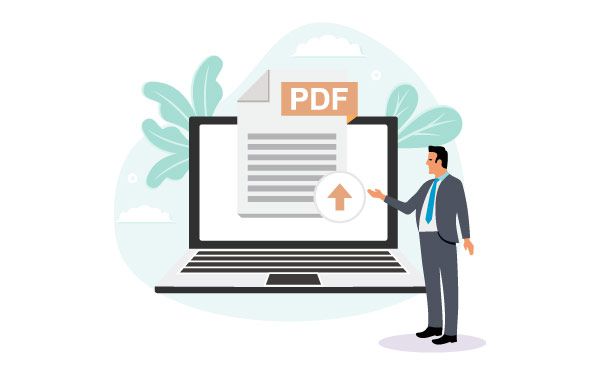How Automated Publishing Software Streamlines Regulatory Submissions for Small Businesses

Small businesses face unique challenges when it comes to regulatory submissions. Without dedicated teams or large budgets, they often struggle to manage the intricate and time-consuming processes involved. However, automated publishing software is revolutionizing how small businesses handle regulatory submissions.
With tools like automated document publishing, small businesses can now simplify their submission workflows. These platforms reduce human error, increase accuracy, and significantly cut down on the time needed to prepare documents. Additionally, these tools offer greater compliance, ensuring that businesses meet regulatory guidelines without excessive manual effort. The benefits of such software extend far beyond just efficiency; they can also lead to long-term cost savings by minimizing the need for dedicated regulatory teams or outsourcing. For small businesses that are already stretched thin, these advantages are game-changers.
The Regulatory Submission Challenges Faced by Small Businesses
For small businesses, regulatory submissions are often a complex and resource-heavy process. These businesses may not have the luxury of dedicated regulatory teams or the financial flexibility to outsource these tasks. As a result, they face common challenges such as meeting deadlines, avoiding costly errors, and navigating ever-changing regulatory requirements.
Manual document creation and formatting can lead to errors, which may delay approvals or result in rejected submissions. Additionally, the need for consistent formatting and compliance with different agency guidelines adds to the complexity. The administrative burden can be overwhelming, especially for small businesses with limited resources, making the submission process a significant hurdle to growth.
Key Benefits of Automated Document Publishing in Regulatory Submissions
Increased Accuracy and Reduced Errors
One of the primary benefits of automated document publishing is the increased accuracy it brings to the regulatory submission process. By automating repetitive tasks like formatting, pagination, and document structure, these tools significantly reduce the risk of human error. Mistakes like incorrect pagination or misaligned tables, which can result in submission delays, are easily avoided with automation.
Moreover, the software ensures that all documents adhere to the strict regulatory standards required by agencies. Automated checks and validations help businesses avoid missing or incorrect information, thus reducing the likelihood of rejections. In a highly regulated environment, accuracy is critical, and automated tools ensure that small businesses maintain a high level of compliance.
Time and Cost Efficiency
Time is often a scarce resource for small businesses. Regulatory submissions, which may take weeks or even months to complete manually, can be streamlined with automated tools. These platforms allow businesses to generate, format, and validate documents in a fraction of the time, freeing up valuable resources.
Furthermore, automation cuts down the costs associated with hiring dedicated regulatory teams or relying on external consultants. By handling the bulk of the submission work in-house, businesses can allocate resources more effectively. In the long term, these cost savings can have a significant impact on the company’s overall financial health.
How Please+Publish Addresses Small Business Pain Points
Automated Document Formatting
Please+Publish is designed to meet the specific needs of small businesses in regulatory submissions. One of its standout features is its automated document formatting capabilities. The software takes care of all the tedious tasks, such as structuring documents according to regulatory guidelines, ensuring that every page is correctly aligned, and maintaining consistency throughout the document.
This automation ensures that businesses no longer have to spend countless hours formatting their submissions manually. With Please+Publish, small businesses can produce professional, compliant documents with minimal effort, allowing them to focus on their core operations.
Integration with Regulatory Agencies
Another critical feature of Please+Publish is its seamless integration with regulatory agencies. The platform ensures that submissions meet the specific requirements of each agency, whether it’s the FDA, EMA, or other regulatory bodies. The software updates in real-time, ensuring that businesses always adhere to the latest guidelines and standards.
This level of integration simplifies the submission process, as businesses no longer need to worry about staying updated with changing regulations. It also reduces the risk of submission rejections due to outdated formats or non-compliance with agency standards.
Selecting the Right Automated Regulatory Software Tool for Your Business
When choosing an automated regulatory software tool, small businesses should consider several factors. First, ensure that the software is scalable, meaning it can grow with your business as your regulatory needs evolve. Additionally, the software should offer a user-friendly interface, so your team can quickly learn how to use it without extensive training.
Look for tools that provide comprehensive support for the regulatory agencies relevant to your industry. It’s also essential to select software that integrates easily with your existing systems, minimizing disruptions to your workflow. Tools like Please+Publish are designed with these considerations in mind, making them a perfect fit for small businesses seeking efficiency and reliability in their regulatory submissions.
Conclusion
Automated publishing software is a game-changer for small businesses navigating the complexities of regulatory submissions. Utilizing tools such as Please+Publish can simplify the entire process, starting from content development to submission, thereby enhancing efficiency, saving resources, and increasing precision. By adopting these tools, small businesses can shift their focus back to growth and innovation, confident that their regulatory needs are being handled efficiently.
Ultimately, automation levels the playing field, allowing small businesses to compete in highly regulated industries without being overwhelmed by compliance challenges.
Get the latest updates from Please+Publish
Recent Blogs
Previous Post
Next Post
CONNECT WITH US

Let's talk about how Please+Publish can help you








